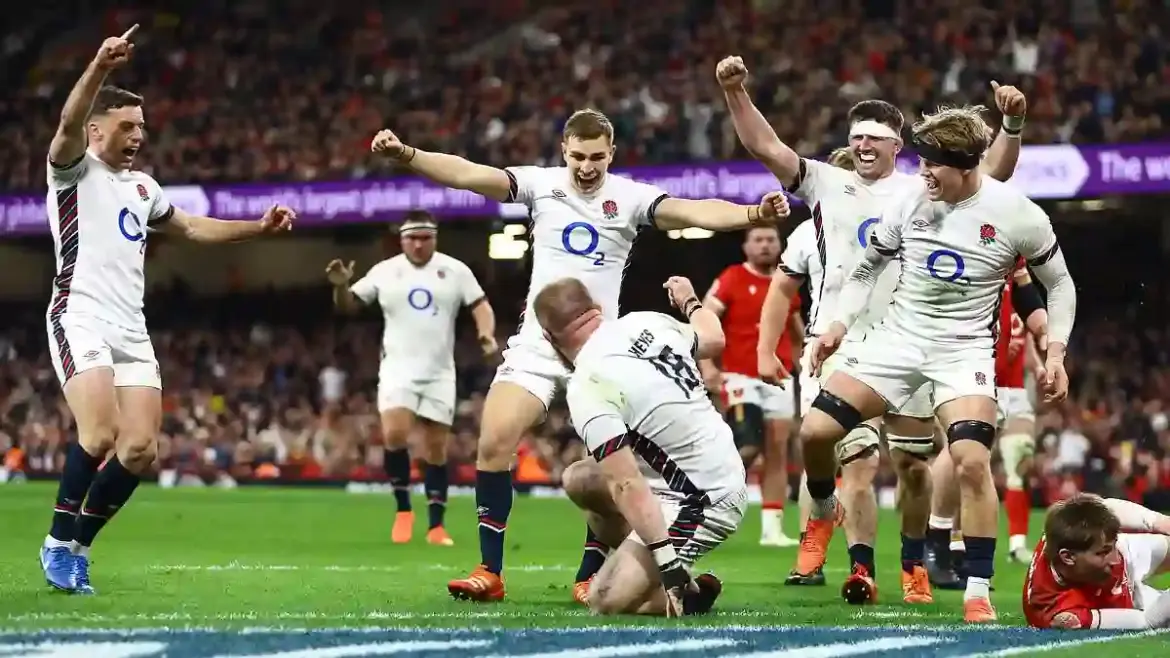It’s hard to believe that professional rugby has now been around for 30 years.
Since 1995, the game has changed dramatically, evolving into the fast-paced, commercial sport we see today.
As the 2025-26 season prepares to kick off this week, there’s a sense that we could be heading into one of the most defining campaigns since rugby went pro. Between thrilling on-field action, off-field uncertainty, and the potential for transformative moments, this season promises to have it all.
Here are six of the biggest talking points shaping rugby in the next 12 months.
Can England Step Up to the Next Level?
Steve Borthwick has had a remarkable six months.
While attention was on the British & Irish Lions this summer, England quietly continued their progress with a 2-0 series win in Argentina—even without key stars who were in Australia.
Last season showed real growth, as England bounced back from a tough autumn to finish second in the Six Nations, stringing together seven consecutive wins.
But what impresses most isn’t just the results—it’s how they’re evolving their style of play.
Borthwick has built an England team that plays attacking rugby with pace and purpose.
Even without players like Maro Itoje, Ellis Genge, Tom Curry, and Tommy Freeman, their performances in Argentina were outstanding. Now, the challenge is to take that next step.
November brings a huge test with fixtures against the Wallabies, Fiji, the All Blacks, and Argentina.
England need statement wins against New Zealand and Australia, and they have the talent to deliver.
Two years out from the World Cup, the timing couldn’t be better for them to raise their game.
Red Roses Poised for World Cup Glory
Women’s rugby fans are in for a treat as England face Canada in the Women’s World Cup final at a sold-out Twickenham this Saturday.
The semi-final against France showed resilience—they weren’t perfect in the first half but did enough to advance.
In knockout stages, results are what count, and I have a feeling England will save their best for the final.
A home World Cup victory could be transformative, boosting participation at grassroots level and inspiring a new generation of girls and women to take up rugby.
The Premiership Looks Fiercer Than Ever
English club rugby is back with one of the most competitive Premiership seasons in years.
The season opens Thursday with Sale taking on Gloucester, and the league promises thrilling, competitive matches.
Newcastle’s Red Bull takeover has injected new energy, bringing in internationals like Liam Williams, Christian Wade, and Amanaki Mafi.
Add players like Louis Rees-Zammit, Tom Jordan, Len Ikitau, and James O’Connor across various clubs, and you’ve got a product that excites.
Six different clubs have won the Premiership in the last six seasons, highlighting the league’s competitiveness.
Bath remain favourites, strengthened by additions like Henry Arundell, Santi Carreras, and Chris Harris.
I’d love to see promotion and relegation return and wouldn’t rule out Welsh teams joining in the future, which could shake things up further.
Head Injuries Need Urgent Attention
Rugby’s head injury crisis continues to cast a shadow over the sport.
Legal battles between former players and governing bodies over alleged negligence and neurodegenerative conditions are damaging rugby’s reputation.
It’s heartbreaking to read about players like Carl Hayman, Billy Guyton, and Shane Christie, who struggled with mental health challenges related to their careers.
If rugby doesn’t address this crisis, it risks long-term damage, including reduced grassroots participation.
World Rugby, the RFU, and the WRU need to collaborate with former players and aim for solutions now. Technology, awareness, and safety measures must be prioritized to protect current and future players.
R360 Brings Uncertainty
Change is in the air with proposals like the R360 franchise league.
While it could shake up the established order, there’s also uncertainty about where top players will play.
International tournaments like the Nations Cup and potential club competitions like the World Champions Cup add complexity.
Supporters deserve clarity, and this season we’ll see whether R360 succeeds or disrupts rugby’s structure.
One worry is that England stars could leave Borthwick’s squad to join the rebel league, impacting team continuity.
A Shifting Global Order
The Rugby Championship has offered a fascinating glimpse at the evolving global hierarchy.
With one round remaining, Australia tops the table, but all four southern hemisphere teams have shown vulnerability.
South Africa, for instance, were beaten at home by the Wallabies and also fell to New Zealand before bouncing back with a stunning 43-10 win in Wellington.
For teams like England, this presents opportunities.
Hosting Australia and New Zealand in the autumn provides a chance to lay down World Cup markers and test themselves against traditionally dominant sides.
The southern hemisphere may still be strong, but cracks are appearing, and Europe must seize the moment.
